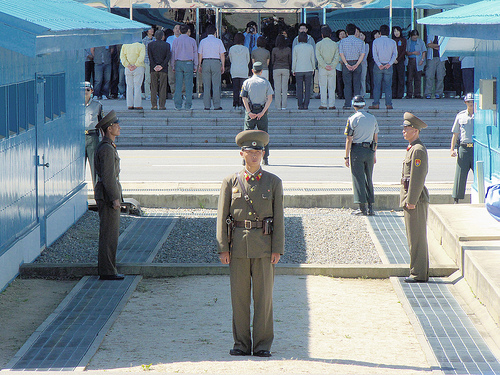Assistant Secretary of State Hill employed his outstanding imagination and diplomatic ability to seek breakthroughs in negotiations with the North in states of crisis. Under the Obama administration, it will not only be difficult to find someone to replace Hill, but even if they do, that person is liable to become a sacrifice to the hotbed of Washington bureaucratic politics if he or she produces a response at the level of the Assistant Secretary of State. The United States could end up once again making an everyday practice of the same, dull ‘tit-for-tat’ negotiations steeped in bureaucratic inertia, while Pyongyang responds with its ‘salami strategy’ (developing its negotiation cards), leading to another state of crisis, like a second nuclear test, as the negotiations fall into an impasse.
As President-elect Obama has emphasized on numerous occasions, the time has come now to break out of the past bureaucratic negotiation practices with the North Korean nuclear issue and find a solution through the opposite approach, with broad-minded diplomatic thinking. Indeed, the October 2000 visit of Madeleine Albright to North Korea was a reconnaissance survey for a visit by then-President Bill Clinton. As an extension of that, Obama should send former President Clinton to North Korea as a special envoy early in his term and seek a historic reversal. If, as a special envoy, Clinton presents a specific plan for verifiable nuclear dismantlement while communicating the Obama administration’s message that it is prepared to sign a basic pact for the easing of hostile U.S.-North Korea relations and the normalization of diplomatic relations between the two countries, I believe that North Korea will present a corresponding response.
The core of the message shown to Pyongyang here is that the normalization of U.S.-North Korea relations is not just the final stage of negotiations, but can be offered as an incentive in the early stages of verifiable nuclear dismantlement as well. At the current round of six-party talks in Beijing, diplomatic relations between the United States and Pyongyang are a card worthy of consideration as recompense for accepting a specific schedule for dismantlement as they enter the third stage following basic agreement on a verification protocol, including the extraction of samples, surveillance activity and access to suspected nuclear facilities. This follows in line with the authenticity of the ‘change’ emphasized by the Obama team thus far.
While the card of diplomatic relations can function as the most attractive lure for North Korea, it should also be kept in mind that the threat of severed diplomatic relations can be a more powerful means of pressure in the event of non-cooperation than military action. Such a good card should not be left until the last stage of negotiations.
An unconventional form of high-intensity, high-level diplomacy with Pyongyang that represents a departure from the current approach, including a North Korea visit by former President Clinton as a special envoy and the proposal of normalization of diplomatic relations, could put some new flexibility into the six-party talks and assist in the smooth execution of ‘verifiable nuclear dismantlement.’ One looks forward to President-elect Obama using broad-minded diplomacy to provide a turning point in the early resolution of the North Korean nuclear issue.


The contribution is excellent and overdue.
At last, some clear thinking on this issue and the potential for a major changeover in policy (US diplomatic relations, Korean War Peace Treaty etc, and significant progress with verifiable nuclear disarmament) – a possible return to the Oct 2000 situation and follow-up to the Albright mission to Pyongyang by special emissary, Bill Clinton – moves that were all canned by George Bush within days of his inauguration, which were then followed by 8 years in the wilderness and the creation of a new N.E. Asian nuclear and missile power.
The only one left in the wilderness will then be Japan.